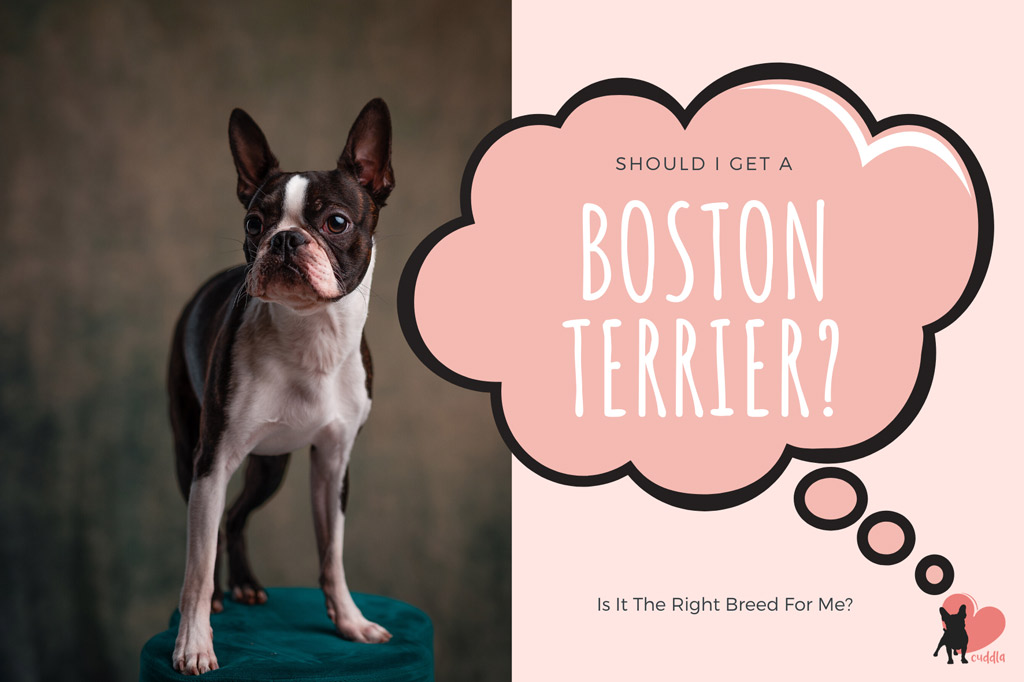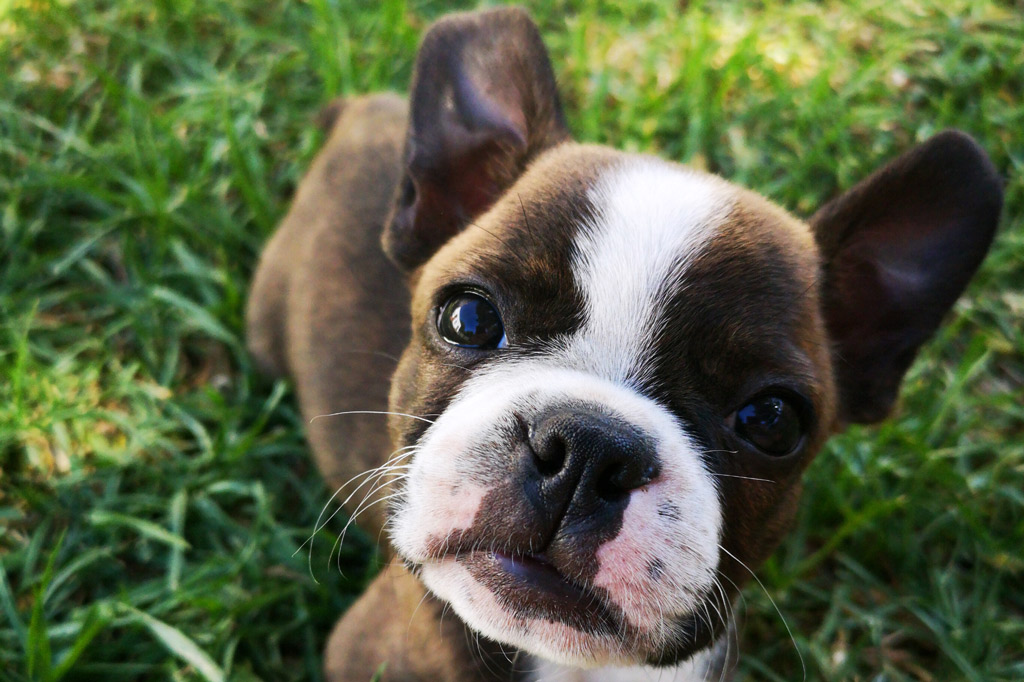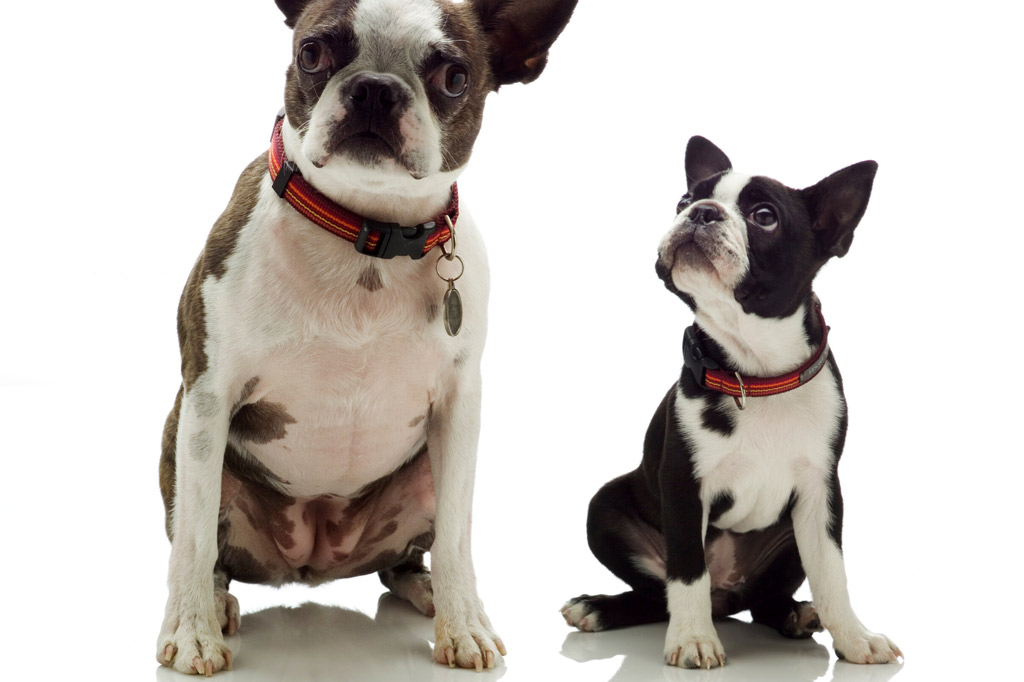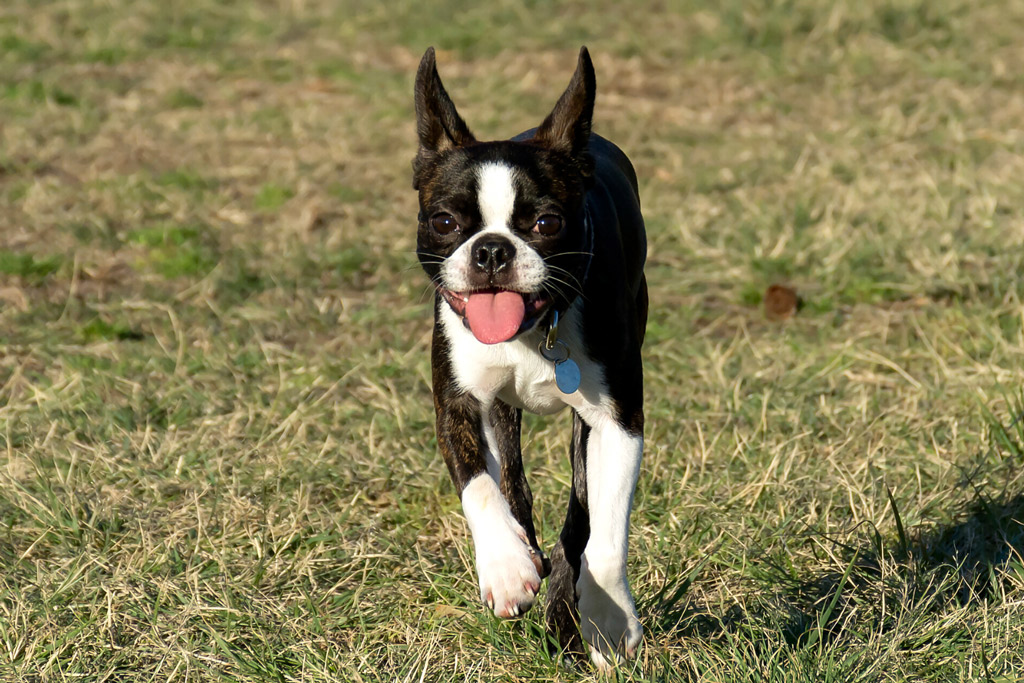
In the Are Boston Terriers Good Pets? 8 Reasons Why blog post, I wrote about the reasons why they are good pets. But, that’s not enough to decide if you should get one!
Are you wondering… should I get a Boston Terrier? Is it the right breed for me?
Great question, because here I go through the breed’s overview, listing Boston Terrier’s facts, traits and needs:
- Characteristics.
- Behaviour.
- Training.
- Exercise.
- Grooming.
- Health.
- Adaptability.
- Friendliness.
- Expenses.
And apart from getting to know the breed, you have to determine if you are going to be able to take care of a pooch!
I will show you the criteria recommended by experts to help you on this journey too.
Criteria For Choosing a Dog
A dog or puppy is a huge commitment of time, money, and energy, and you need to make sure that you’re ready before you bring a pet dog home.
Also, you need to consider a dog’s potential needs (now and in the future).
Have a look at this short video for the criteria for choosing a dog:
Before taking a dog home… start by doing some research that will help you make an informed choice. Doing so ensures you choose a dog whose needs you can meet.
The People’s Dispensary for Sick Animals (PDSA), a veterinary charity in the United Kingdom, uses the acronym PETS to help you decide if you should get a dog.
Following PETS acronym:
- P – Place: Is my place suitable?
- E – Exercise: Am I able to exercise a dog?
- T – Time: Do I have enough time to look after a dog?
- S – Spend: Do I understand the lifetime costs of dog ownership?
The next question is… Am I able to meet a dog’s 5 welfare needs?
- Environment: A suitable environment.
- Nutrition: A suitable diet.
- Behaviour: The ability to behave naturally.
- Health: Protection against pain and sickness.
- Companionship: Appropriate company, housed with, or apart from, other animals.
If your lifestyle and circumstances are right, and you can meet a dog’s welfare needs… then it’s time to look at the Boston Terrier breed!

Boston Terrier Breed Profile
Due to the variety of dog breeds available, it can be quite overwhelming to pick one. Every breed has its own uniqueness and needs. On top of that, each dog develops his own personality.
That’s why I think it’s important to go through the Boston Terriers Breed Profile below, so you can establish if you align with these cuties.
Boston Terrier’s facts, characteristics and traits:
| Name | Boston Terrier |
| Other Names | Boston Bull, Boston Bull Terrier |
| Nicknames | American gentleman, Boxwood |
| Origin | The U.S. (Boston) |
| Date of Origin | The late 1860s |
| Ancestry | Bulldog and now-extinct white English Terrier (possibly French Bulldog too) |
| Breed Group | Non-sporting |
| Bred For | Companionship mainly – also for competing in Dog Shows and Sports |
| Popularity | Rank 21 of 195 in the Most Popular Dogs Breeds list by the AKC (in 2019) |
| Size | Small |
| Weight | 4.5 to 11 kg (9.92 to 24.25 lbs) depending on their size |
| Height | 15 to 17 inches (38.1 to 43.2cm) |
| Lifespan | 11 to 13 years |
| Colour | Brindle, seal (black with a red cast in direct sunlight), or black coat with white markings |
| Coat Type | Short, smooth and fine |
| BEHAVIOUR | |
| Temperament | Friendly, lively and smart |
| Personality | Varies – They can be boisterous, stubborn, hyper, easy-going… depending genetics, upbringing, etc. |
| TRAINING | |
| Trainability | Easy to train and eager to please |
| Intelligence | Smart |
| Mouthiness | Low potential |
| Barking | Low tendency – But they make funny noises |
| Prey Drive | Low |
| Wanderlust | High potential |
| EXERCISE | |
| Exercise Needs | High – Active breed that needs at least 1 hour of daily exercise and playtime |
| Energy levels | High |
| Intensity | High |
| Playfulness levels | High – Very playful |
| GROOMING | |
| Grooming Needs | Low – Easy to Groom |
| Shedding Ammount | Low |
| Hypoallergenic | No |
| Drooling | Low tendency |
| HEALTH | |
| Health of Breed | Average |
| Obesity Risk | Average tendency – No worries as long as they get daily exercise and follow a balanced diet |
| Common Health Issues | Cataracts, Cherry Eye, Patellar Luxation, Heart problems, Congenital Deafness, and Allergies |
| ADAPTABILITY | |
| Tolerance to Heat | Low – They don’t good with extreme temperatures since they are prone to overheating (Branchycephallic breed characteristic) |
| Tolerance to Cold | Low – They don’t good with extreme temperatures (their single coat doesn’t provide enough warmth) |
| Tolerates Being Alone | Low – They can suffer from separation anxiety if left alone frequently |
| Sensitivity Level | High – They are sensitive to punishment, harsh tones and negative reinforcement |
| Good First Dog | Yes – A good choice for first-time owners |
| Good Apartment Dog | Yes – Adaps well to apartment living |
| FRIENDLINESS | |
| Affectionate | Yes – Love to cuddle and snuggle with you |
| Good Family Pet | Yes |
| Kid-Friendly | Yes |
| Dog-Friendly and Other Pets | Yes – Good with other dogs if properly socialized |
| Friendly with Strangers | Yes – With appropriate socialization since they can be average guard dogs too |
| EXPENSES | |
| Average Annual Cost | $1,953.15 to $4,181.99 (or $162.76 to $348.5 per month) |
| Purchase Price from a Breeder | $1000 to $2000 for a purebred Boston Terrier ($4500 for superior lineage ones) |
| Purchase Price for Adoption | $100 to $350 for adopting one from a rescue group |

Should I Get a Boston Terrier?
If you are looking for a dog who…
- Is a companionship doggy – they are people-oriented dogs that enjoy frequent attention.
- Is small yet sturdy – not a delicate lapdog.
- Is very affectionate and loves to cuddle.
- Has large expressive eyes and funny expressions.
- Is low maintenance when it comes to grooming and sheds minimally.
- Is usually friendly with everyone, including kids, other pets and strangers (proper socialization is necessary, like with every dog).
- Loves playing tug and chasing balls.
- Is eager to please his owners and easy to train.
- Can be a watchdog.
- Is a good choice for first-time owners, whether you live in an apartment or in a house in the countryside.
- Is relative quiet – they only bark occasionally.
– > A Boston Terrier is right for you!
However, if you don’t want to deal with…
- Sounds like snorting, snuffling, wheezing, and snoring.
- Gassiness (flatulence) – mostly due to an unbalanced diet that is not free of grains.
- High energy levels – they need a daily hour of exercise, including walks, training and playtime. They are good with agility but they are not long-distance runners.
- A dog that suffers from separation anxiety if left alone for too long and too often.
- Unexpected health problems when a Boston comes from an unreputable breeder or you have no access to his health records.
- A sensitive attitude – they are sensitive to the moods of their owners, which means that they get upset if you use a harsh tone or negative reinforcement training.
- A pooch that cannot adapt to extreme temperatures – their short coat won’t provide enough insulation from the cold and they are easy to overheat with hot weather due to their brachycephalic features.
- A high risk of eye injury due to their prominent eyes.
-> Then a Boston Terrier is not right for you.
Insider Tip: Although their temperament is lively, friendly and smart, their behaviour is shaped by many factors. Plus every Boston Terrier has his own personality.
Physical traits are more predictable than behaviour. However, you can ensure good behaviour by considering:
- Genetics: Dogs inherit part of their temperament. Reputable breeders will choose to breed Bostons with even temperament and good personality traits.
- Personality: A Boston’s individual personality that gets shaped by genetics and learning experiences whilst growing up. The first part can be addressed by picking a reputable breeder or knowing about the dog’s ancestry when adopting. The second part is up to you!
- Socialization: Appropriate socialization before 14 to 16 weeks of your puppy’s life helps in a positive development on your Boston’s personality. It enables a dog to cope with new situations with confidence. Socialization is important to prevent possible aggression problems, anxieties and fears from developing.
- Motivation: It also plays a role in your dog’s behaviour. How important a particular activity or reward is to your dog.
- Training: Especially if you teach your pooch from an early age using positive reinforcement training, you will be able to prevent a huge list of unwanted traits.
- Environment: Your Boston Terrier’s previous experiences and the environment will influence his behaviour too. Due to the fast-paced lifestyle we have, our dogs are more prone to having negative experiences. For instance, if a Boston is left alone for long hours, he’s likely to develop separation anxiety and other negative responses.
Read also: Boston Terriers Personality – What’s it like to own one?

In Conclusion
Once you know that you have the time and are ready to commit to a dog, it’s all about the Boston Terrier being the right fit for you!
If you want a friendly companion that is very affectionate and loves spending time with you, a Boston is a fantastic choice. Checking our Boston Terrier Care guide is a great next step to take. 😉
However, if you are looking for an outdoors dog, are going to leave your pooch alone often or you travel often for work… I would recommend you to look for a breed that moulds better to your lifestyle.
Finally, decide if you want to adopt from a rescue or get a puppy from a reputable breeder. BUT be aware – raising a puppy is a lot of work! But it can also be a rewarding experience.
For a deeper inside check How to Adopt a Boston Terrier and What to Look For and How to Find a Reputable Boston Terrier Breeder and What to Ask blog posts.
